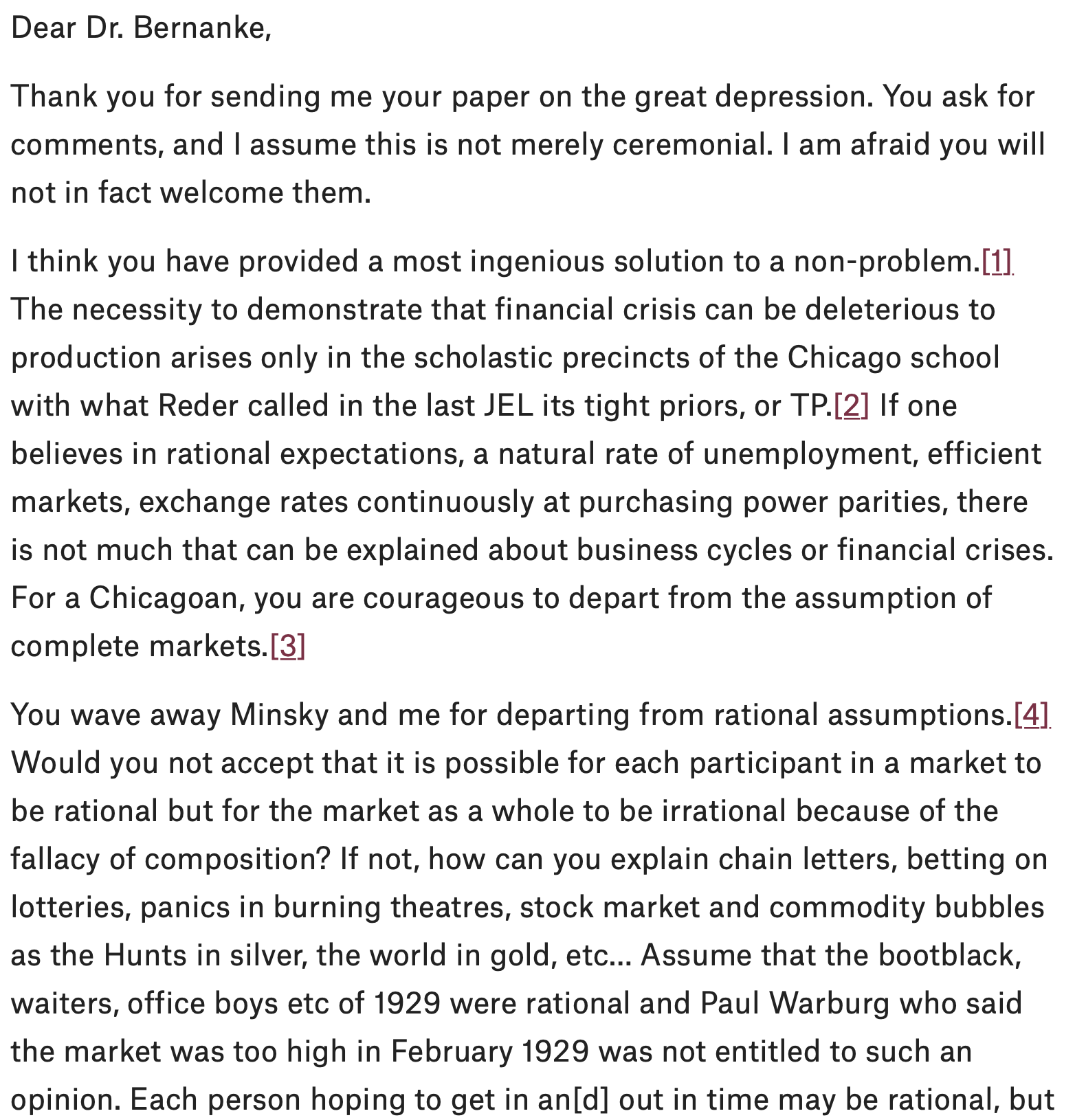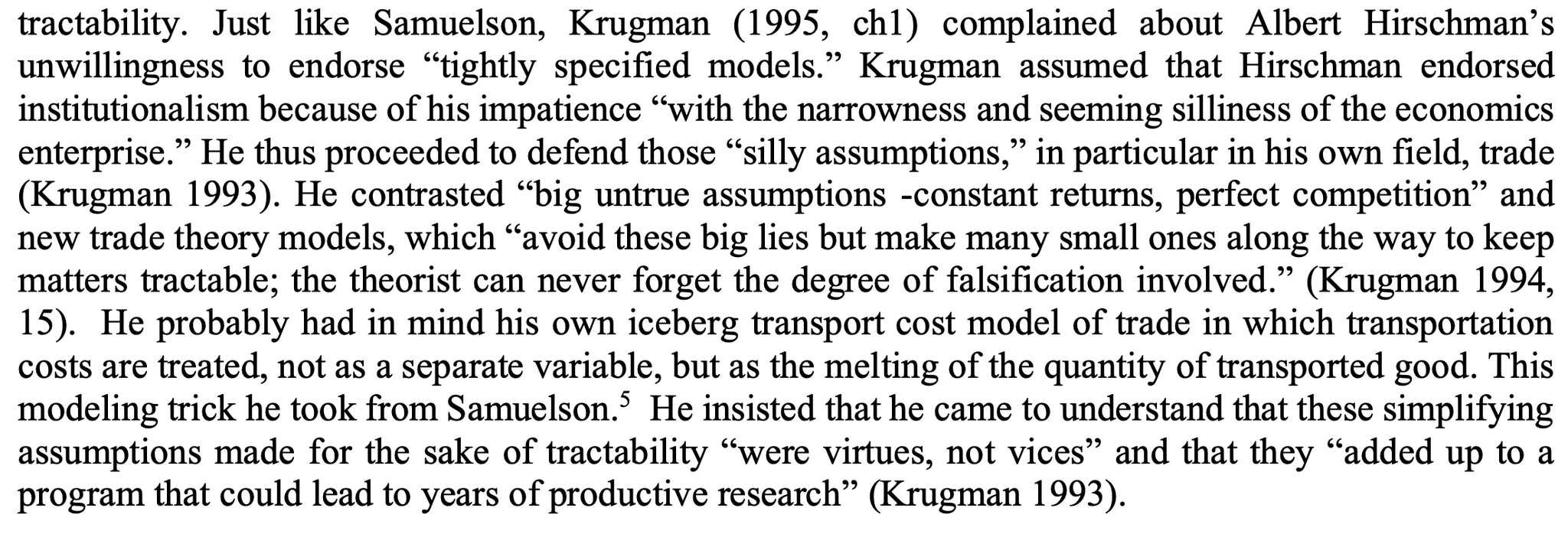Thread by Beatrice Cherrier
- Tweet
- Oct 17, 2022
- #Scientificmethod #Economics
Thread
1/ This fascinating thread encapsulates 2 key feature of the mainstream (Krugman) vs heterodox (Kindleberger) faultline
-they have different epistemologies (aka idea of what’s a good contribution to econ)
-epistemological preferences are often disguised as positive statements
-they have different epistemologies (aka idea of what’s a good contribution to econ)
-epistemological preferences are often disguised as positive statements
2/ For Tooze reflecting on @PMehrling ’s new bio of Kindleberger (and for K himself, as showed in his criticisms of Bernanke’s work on Great Depression www.ineteconomics.org/perspectives/blog/bernanke-v-kindleberger-which-credit-channel), a good contribution to the theory of banking, money and financial crisis is institutionally exhaustive
3/ that is, it provides new insights into how international credit markets operate, into the complex & multi-faceted dynamics of bank failures & booms/busts, or what various types of econ agents think money is, their degree of rationality, their strategies.
For Krugman, it's ≠
For Krugman, it's ≠
4/ Pursuing a long MIT tradition, Krugman thinks good econ is about isolating key mechanism, representing it mathematically in a TRACTABLE model (one you can manipulate & solve)
Simplicity is a virtue papers.ssrn.com/sol3/papers.cfm?abstract_id=4189091
Simplicity is a virtue papers.ssrn.com/sol3/papers.cfm?abstract_id=4189091
5/(In ref above I show that even among those econs who endorsed tractability as a virtue, they were ≠ standards for tractability,such as closed-form vs numerical)
So heterodox econs value new *ideas* while mainstream value new *models* that *operationalize* possibly old ideas..
So heterodox econs value new *ideas* while mainstream value new *models* that *operationalize* possibly old ideas..
6/ ...the game being reframing these concepts, theories, mechanisms into a mathematical apparatus make them versatile (they can be applied to different settings/fields, combined and refined in different ways, but the mechanism remains recognizable)
7/ If those epistemological differences, their origins and transformations was what we were discussing in the wake of Nobel, if that would lead us to read @PMehrling's wonderful new book and discuss the clash of epistemologies at MIT, that would be a valuable debate to have
8/ But no, Krugman (and Tooze) both choose to make it about the other side' weakness. The 2nd write about effrontery, while the first chooses to strip 2 renown historians of their expertise by pointing to they purported lack for formal practice
In doing so, he reframes his subjective reminiscences (Dornbusch was much clearer teacher than Kindle..) & own epistemological preference (for tractable models) as historical facts, dismisses historians' positive understanding of econ practices (however formal). I'm tired of this
I don't have any personal preference for one of these two stances. But the way these public intellectuals choose to frame the debate leaves no space for historians to document these epistemological divergences (because we're not granted any distinctive expertise to do so)
/end/
/end/

